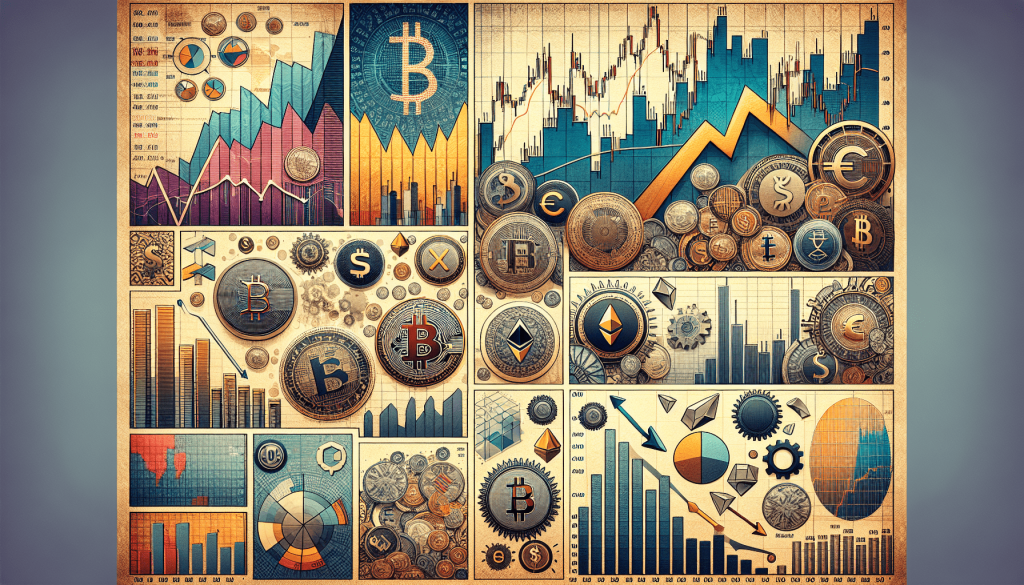
You’ve probably wondered, “How much can I make from trading?” This is a question that lingers in the minds of many who are considering stepping into the dynamic world of trading. In this piece, you’ll gain invaluable insights into potential earnings from different types of trading strategies. It’s important to remember, though, the world of trading can be as rewarding as it is risky, but equipped with the right knowledge and tools, you could be well on your way to financial success.

Understanding the Basics of Trading
Whether you’re a seasoned investor or looking to make your first trade, getting a grasp on the fundamentals is crucial.
Definition of trading
Trading, at its core, is the act of buying and selling securities in the financial market. It’s about capitalising on short-term price changes to turn a profit.
Different types of trading: Day trading, Swing trading, Forex trading, etc.
There are various types of trading that you can explore according to your personal preference. Day trading involves making trades within the same day, capitalising on small price changes. Swing trading, on the other hand, looks at a broader timeline, with trades spread out over days or weeks. Forex trading involves the exchange of various currencies on the global market. Each type has its own unique dynamics, challenges and potential rewards.
Risks and rewards of trading
As with any financial endeavour, trading carries both risks and potential rewards. The ability to make quick profits draws many to the trade, but it’s also possible to incur significant losses just as swiftly. Your success will depend on several variables, including the amount of capital investment, the state of the market, your strategy, and your understanding of trading.
Factors Influencing Trading Income
The amount you can make from trading is influenced by several key factors.
Capital investment
The amount of money you invest upfront can be a huge factor in your potential income. Generally, the more money you invest, the greater your potential returns (and losses) can be.
Market volatility
Financial markets fluctuate constantly, and these movements can greatly affect your trading income. A volatile market can bring opportunities for higher profits but can also lead to larger losses.
Strategy effectiveness
The effectiveness of your trading strategy plays a huge role in your income potential. Successful traders don’t just rely on luck – they use reliable, tested strategies to make informed decisions.
Trading fees and taxes
You must also factor in trading fees and taxes. These necessary charges can easily eat into your profits if you’re not careful.
Setting Realistic Expectations
Before you dive into the world of trading, it’s essential to set realistic expectations.
Average earnings for beginners vs. experienced traders
Beginner traders often earn less than more experienced ones due to lack of familiarity with the market and efficient trading strategies. Over time, as you gain experience and hone your skills, your earnings potential can increase.
Understanding the learning curve
Trading is not easy, and it has a steep learning curve. It demands a great deal of patience, dedication, and discipline but can be rewarding if you stay perseverant.
Importance of patience and discipline
Patience and discipline are key to successful trading. Without these characteristics, you run the risk of making impulsive decisions that can lead to hefty losses.

Education and Skills Required
Knowledge is power when it comes to trading.
Importance of financial education
Financial literacy – understanding how financial markets work and the principles of investment – is vital in trading. The more you know, the better positioned you’ll be to make informed decisions.
Analytical skills and trading software
Analytical skills are also critical. The ability to read charts, interpret data, and predict market trends can give you a significant edge. Nowadays, there are various trading software tools that can assist you.
Continuous learning and adaptation
The financial market is dynamic, and to consistently profit from trading, you must be adaptable and committed to ongoing learning.
Risk Management
A good risk management strategy is essential to your trading success.
Establishing a risk management strategy
Risk management involves recognising potential risks and taking measures to reduce their impact. This strategy can include diversifying your investments and using stop-loss orders.
The role of stop-loss orders
Stop-loss orders help curb your losses when the market doesn’t move in your favour by automatically selling your securities when they reach a certain price.
Diversification to minimize losses
Diversification – spreading your investments across various assets – helps reduce risk. If one investment performs poorly, others may perform well, helping to offset the loss.
The Importance of a Trading Plan
A solid trading plan can be your roadmap to trading success.
Setting clear goals and objectives
Your trading plan should begin with clear, realistic goals. Whether you’re aiming for steady income or growing your wealth, clarity can guide your trading decisions.
Choosing the right trading style
Next, determine your trading style based on your goals, risk tolerance, available time, and expertise. Each trading style – day, swing, forex, etc. – has its own set of strengths and downsides.
Monitoring and adjusting the plan
Finally, a trading plan should be flexible. Markets are unpredictable and change continuously. Regularly reviewing and adjusting your plan can help keep you on track.
Leverage and Its Effects
Leverage can be a powerful tool in trading.
Definition of leverage
Leverage means using borrowed money to increase your trading position beyond what would be possible on your current cash balance.
Potential for higher gains and the risk of amplified losses
While it can magnify your profits, it can also amplify your losses. If your trade goes against you, you stand not just to lose your investment, but also to owe more money.
Using leverage wisely
Remember always to use leverage wisely. It should align with your risk tolerance, and you should have a clear understanding of its potential impact on your trades.
Analyzing Profit Potential
Before you start investing, it’s crucial to analyze your profit potential.
Calculating potential profits
Profits are calculated by subtracting your trading costs from your overall returns. It’s also useful to understand concepts like win-rate (the percentage of your trades that are profitable) and risk/reward ratio (the potential profit you stand to make against the potential loss).
Understanding win-rate and risk/reward ratios
A high win-rate and risk/reward ratio can increase your chances of success but be careful. It’s not about the percentage of trades you win, but more about how much profit you make compared to your potential loss.
Real-world examples of profitable trading strategies
There are many successful trading strategies out there. Some focus on trend following, others on momentum, and others are purely data-driven. The key is to find one that works for you and stick with it.
Psychology of Trading
Successful trading isn’t just about numbers – it’s about psychology too.
Emotional discipline and control
Part of being a successful trader involves being able to control your emotions. If you let feelings like fear or greed dictate your decisions, you can quickly start making poor trades.
Dealing with losses
Every trader experiences losses. The key is to treat them as lessons and use the experience to improve your strategies moving forward.
The dangers of overconfidence
Similarly, while confidence is essential in trading, overconfidence can be a significant downfall. Always remain aware of your limits and the risks involved in each trade.
Conclusion: The Reality of Trading Income
The truth about trading income is that it varies greatly. Some traders make millions, while others struggle to break even.
Summarizing potential earning ranges
The earning potential will depend on many factors, including your starting capital, risk management strategy, patience, discipline, skill set, market understanding, and most importantly, the time and effort you are willing to invest.
Emphasizing perseverance and continuous improvement
However, it’s essential to remember that successful trading often comes down to perseverance and continuous learning. Keep improving your skills, gain new strategies, and stay up-to-date with market conditions.
Encouraging responsible trading practices
Lastly, always trade responsibly. Understand your risk tolerance, set a budget, stick to your trading plan, and never invest money you can’t afford to lose. Trading can be rewarding, but it’s essential to approach it with preparation, realism, and care.



